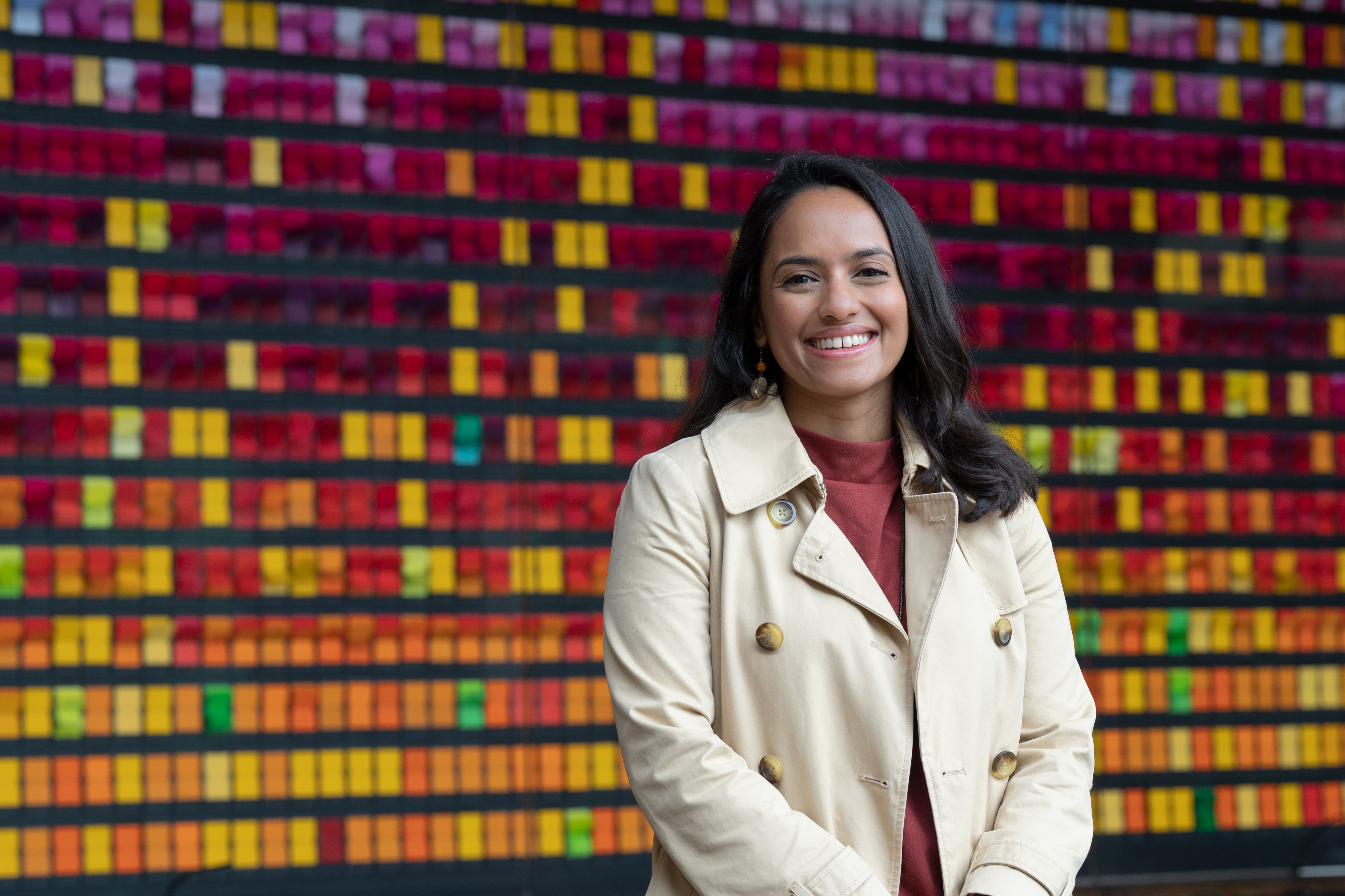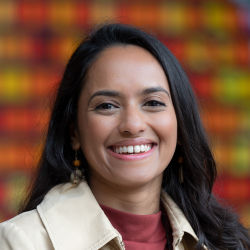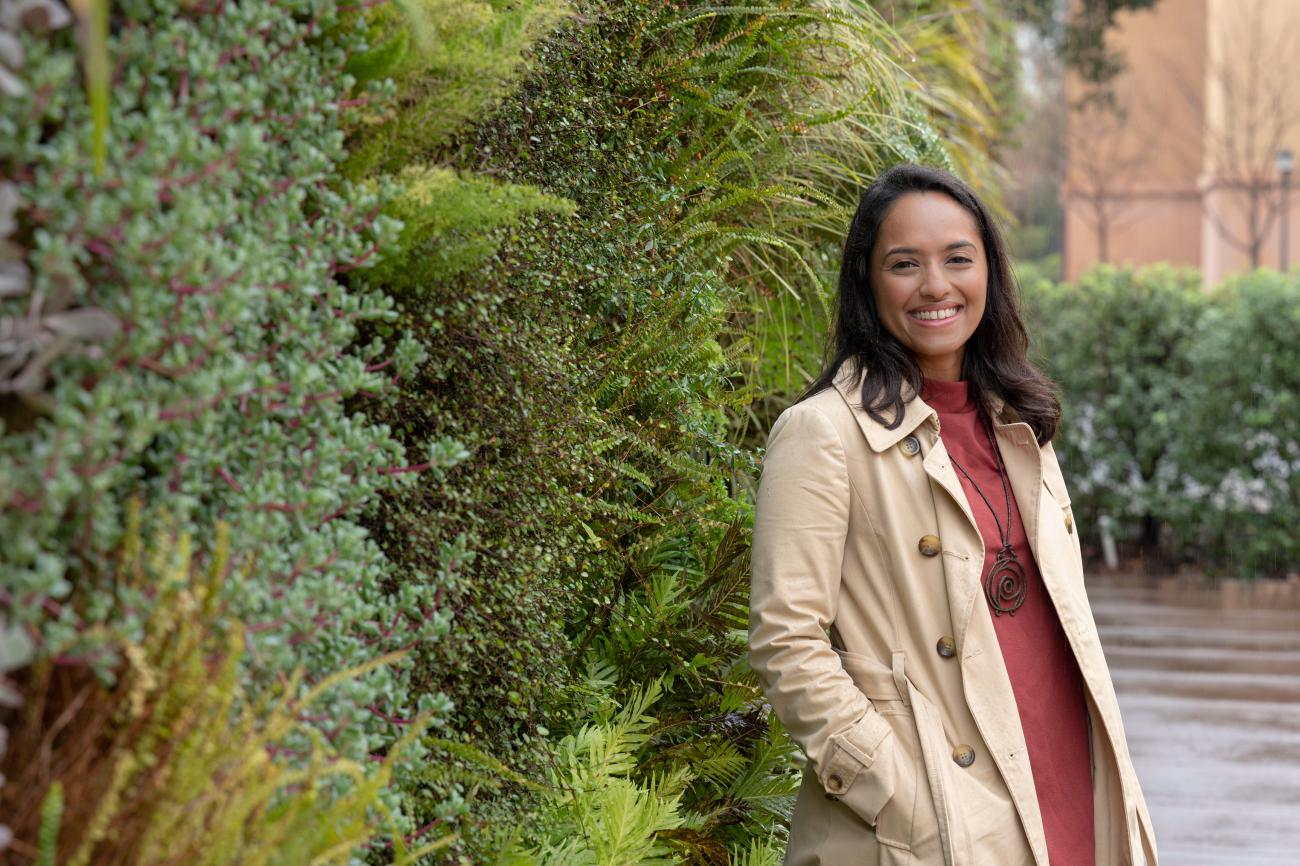
Ishita Ahmed
What drew you to study education?
My family is from Bangladesh, and education is a central tenet in our story. While my father was working for USAID in Bangladesh, he met a blind professor from Cornell who mentored him and encouraged him to apply for a master’s program. My father was accepted into Cornell and his mentor provided him with a scholarship from the Helen Keller Foundation. Education was a gateway for my parents to pursue better opportunities. Years later, my parents raised me and my two sisters in the U.S. to present us with the gift of education that they struggled to receive. I feel extremely fortunate to have parents who always prioritized our education and had the ability to move to the best school districts. However, many children around the world do not have this opportunity. What situation you are born into can dictate your life trajectory. I want to conduct research that shakes things up so children from all backgrounds can receive a solid educational foundation and have the necessary knowledge to create their own path of success despite challenging circumstances.
What were you doing prior to applying to the GSE?
In college, I was involved in local and international community service related to education. I spent a summer volunteering at an orphanage in Bangladesh and learned how under-resourced they were and how corruption siphoned off the limited funds they had. Afterward, we fundraised to support a local non-governmental organization that supported girls’ education in a rural Bangladeshi village. I also joined a school organization to support education in rural Belize by helping them with construction projects. However, these experiences left me wondering what was really making a difference in improving education on a large scale. After college, I interned at the World Food Programme to learn about how they develop nutrition and agriculture programs to support impoverished families and children. I became disenchanted with how they were throwing money at so many different issues without thoroughly testing what was effective. Governments have limited resources and we need to better understand what they should fund. Research was the answer. I interned at Innovations for Poverty Action in Bangladesh, working on evaluating different ways to improve household sanitation practices, and subsequently led a follow-up survey examining the impacts of a secondary school scholarship on children’s long-term well-being in Ghana. Talking to children and understanding how the scholarship was impacting their lives fueled my interest in applying to graduate school to lead my own projects.
Is there anyone who inspired you to pursue advanced study in education?
My father is my main mentor. He works at the International Food Policy Research Institute (IFPRI) and is extremely dedicated to agriculture research that alleviates poverty for rural households, especially in Bangladesh. Growing up, I used to read his policy briefs on Food for Education, a program in Bangladesh that provided food to kids in school to incentivize them to attend school. It was surprising to me, a kid who loved school and did not need to support my family’s income, that some families could not send their children to school because they needed to work at home. Talking to my dad planted the seed to learn more about policies that expand access to quality education for more children.
What research are you pursuing at Stanford? What is your dissertation work or plans?
Interdisciplinary research is key. I am integrating psychology with economics to understand how parents, home environments, and classroom processes shape children’s learning. For example, there is a lot of evidence that preschool is beneficial, but those effects fade out over time, typically by third grade. The school and family beyond preschool plays a pivotal role in sustaining the effects of preschool. How can policies support schools and families most effectively to continue supporting children’s learning? I also want to push beyond looking at academic outcomes as the only metrics of successful education policies. My current research project will develop culturally relevant measures of learning in understudied contexts, such as rural Bangladesh. I draw from existing psychological constructs, such as executive function and self-regulation, to understand how they are applied by children in Bangladesh during learning at home and at school.

What do you do to relax and have fun?
Explore the outdoors! I love the landscape diversity in the Bay Area. One day you can hike along the rugged coastline and have a bonfire at the beach and the next day you can be traversing the Sierras, following the footsteps of John Muir. My favorite adventure last fall was to backpack along the Lost Coast, a stretch of the coastline that is totally remote and undeveloped. I saw sea lions and elephant seals chilling just a few feet away and the sky turning fiery red at sunset. Sleeping under the stars and totally unplugging in nature – the best part of California.
What future research do you hope to pursue?
I want to do research that does not just confirm and replicate existing theories and measures – I want to push the boundaries and represent experiences of children whose voices are unheard. The motivation for my research stems from wanting to improve education in rural Bangladesh, and I need to understand how they learn in order to inform the best approach. Based on my past fieldwork experiences in Ghana and Bangladesh, I know each conversation will bring a new dimension to how I can develop measures to represent diverse local experiences. Emerging research demonstrates that communal societies may promote collective regulation more than self-regulation, which can shape how we think about relevant tasks and observations. In rural Bangladesh, children are constantly learning from their parents while doing activities in the farm or local business. They are using executive function skills that can support their success in future endeavors. However, they are not used to traditional measures of executive function that involve independently solving games on a tablet. I am excited to observe the dynamic among family members and how children learn from their parents and siblings. I am not going in with assumptions of what the final measure will look like. The measure will be shaped by the voices of the local community.
What impact do you hope your work will have?
Hundreds of research papers churn out results about how a certain policy did or did not improve test scores. But they don’t know why. I want to fill that gap. What is the mechanism behind how children really learn? How can we account for cultural differences in learning? We may fail to detect the positive effects of policies on children’s learning if measures do not capture the local context. Measurement matters. Developing measures that represent key elements of how children learn will provide economists and other researchers with outcomes outside of academic test scores that shed light into how a policy is effective. Integrating these measures into studies evaluating education policies can provide evidence on the ecosystem of support that can enable children from all different backgrounds to gain the knowledge and skills they need for their well-being. Measures that center the voices of local communities are crucial to reducing global inequities in child development.
Any tips for incoming students to help them get the most from their time here?
Balance and curiosity. When students are first starting, the plethora of opportunities and workload can feel overwhelming. Rather than working constantly, it is important to set boundaries, explore, and reflect. Build connections with people and recharge mentally. Explore the different facets of Stanford outside the GSE as well. Talk to professors in other departments. Take a class in a creative area. Go outside what you already know and it can spur innovation.
Looking back, what would you like to have told yourself on the first day of your PhD?
Everything you think you will do will change and evolve constantly. Grow from the uncertainty.

Photos by Rod Searcey
